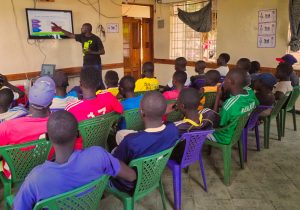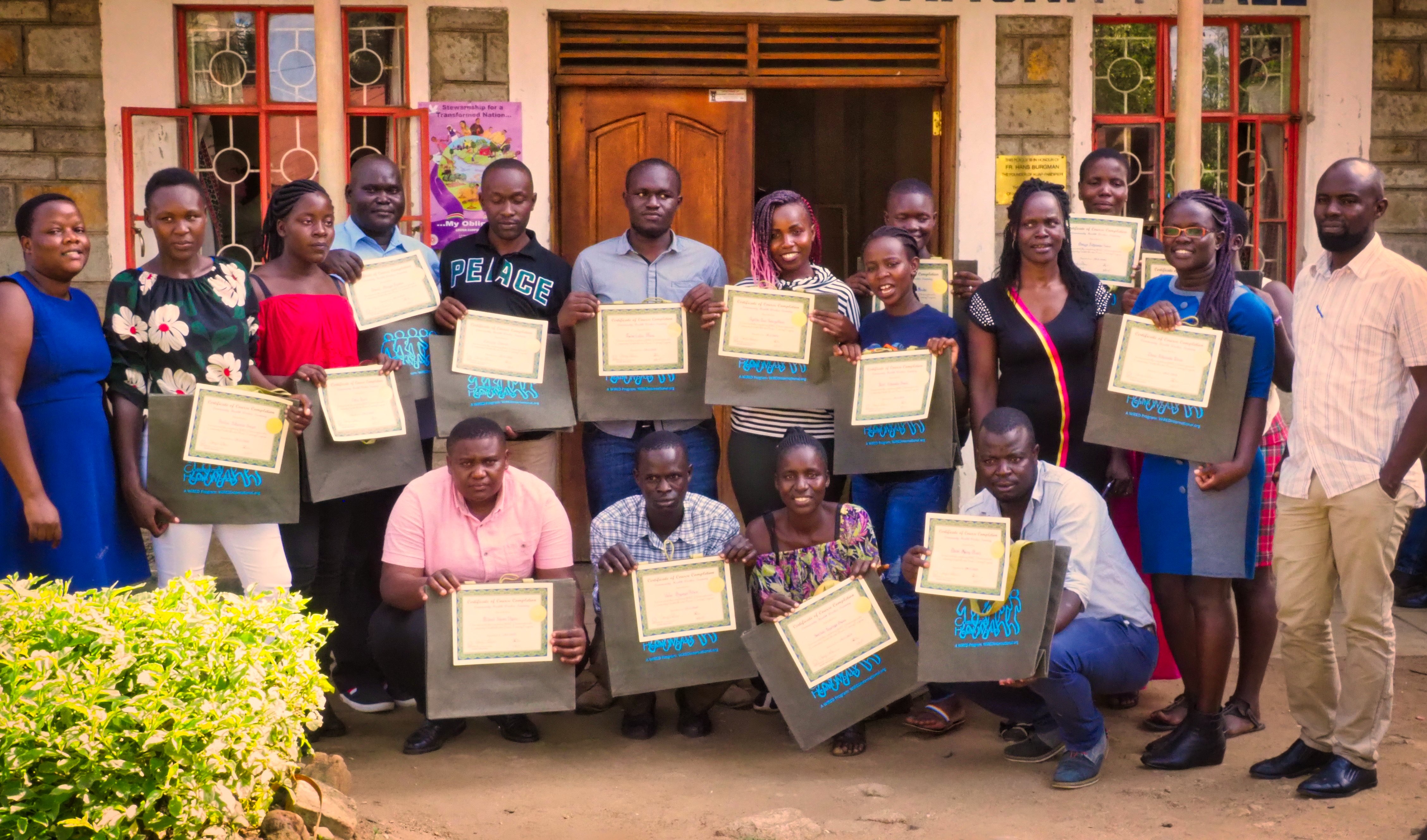Inaugural graduating class of the CHW program
Demonstrates Successful Health Learning
in Challenging Environments
By Allison Kozicharow; Edited by Jessie Crowdy
The WiRED International team completed the first field test of our Community Health Worker (CHW) Training Program this week in Kisumu, Kenya. More than two years in the making, WiRED Executive Director Gary Selnow, Ph.D., said, “The comprehensive content and the delivery aspects of this basic community health worker training program make it the first of its kind anywhere in the world.”
Background
The World Health Organization (WHO) declared CHWs to be key to improving people’s health in low-resource areas of the world, where doctors and nurses are scarce. CHWs are frontline health workers who have a close understanding of the specific health issues of communities they serve. Barriers to increasing the scant CHW workforce globally are: the lack of training, supervision and support.
In response, WiRED developed a basic CHW training program centered on the World Health Organization’s (WHO) descriptions of CHW responsibilities. We first researched WHO expectations and guidelines for CHWs and created a curriculum under the guidance of a dozen physicians and nursing professors.
How does the program work? WiRED supplies the CHW materials, trains the trainers and supplies some equipment. Our partners on the ground organize and administer the training classes. We planned this first field test to take place in Kenya, soon to be followed by tests in India, Nicaragua and Armenia. Claremont Graduate University is supervising this pilot phase.
The field test in Kenya
For the past two weeks, Dr. Selnow sat in on classes using WiRED modules given by Zablon Asembo Kitoli, a medical clinician, and Winnie Nafula Makhaka, a nurse. Both trainers have had years of experience in the community health sector.

The curriculum uses WHO topics, centering around: (1) general public health/medical background issues (anatomy, infectious diseases, non-communicable diseases); (2) clinical issues (e.g., patient assessment, first aid); and (3) community outreach — communication, teaching and health surveillance.
Fifteen students selected from local communities attended classes daily, during which they engaged with the trainers and participated in the interactive elements of the modules.
Dr. Selnow said, “It’s inspiring to watch these young people take in the lessons. We provided lunch and tea breaks, and they would come back early, waiting for the class to begin.”
After the training, the future CHWs demonstrated their capacity to teach a community about health. Concluding the program, students took a rigorous final exam.
The result
The pilot program was designed to determine if the curriculum provides students with the essential background necessary to prepare CHWs for their roles. Thirteen of the 15 students passed the final exam, while the remaining two have one more opportunity to retake the test.
Dr. Selnow said, “It’s gratifying to see the student response to this curriculum and to observe the effectiveness of the training material measured by the students’ impressive performance on a difficult exam. This is strong evidence that the program provides the fundamentals necessary to prepare effective community health workers.”
In addition to the basic training curriculum, WiRED provides an ongoing program in Continuing Health Education, allowing certificate earners to stay current on the latest health and medical issues facing low-resource communities. WiRED maintains that offering our CHW program at no charge makes an expert training curriculum accessible to even the neediest communities. This underscores our belief that community health begins with knowledge.


